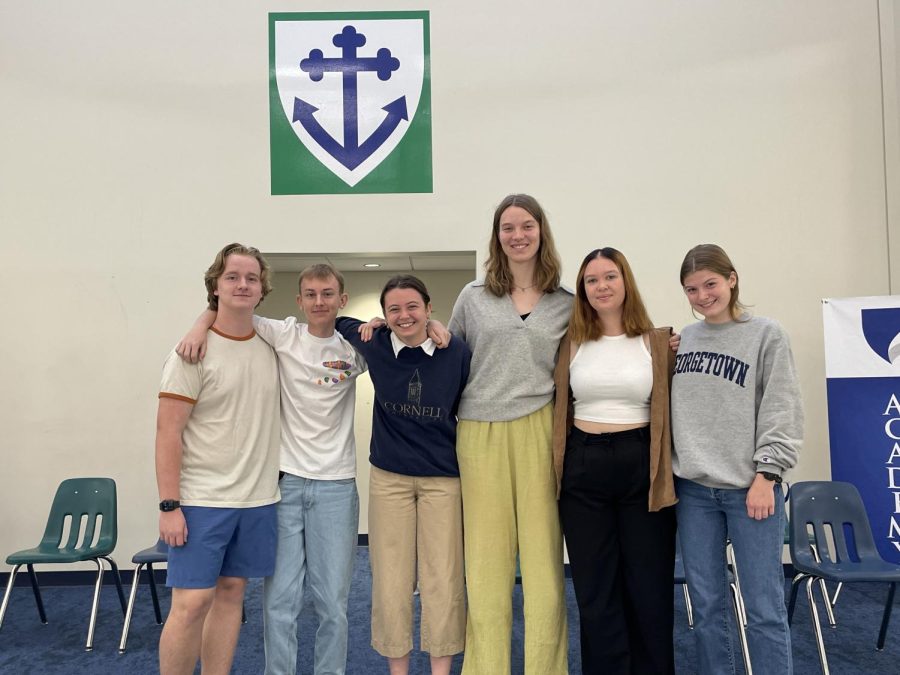International Invasion!
Seabury Scoops up Students from Around the Globe
Juniors Spencer Timkar, Paul Grüendel, seniors Cambill Garlock, Frida Schwartau and juniors Anna Christophersen and Campbell Helling pose on their first day of school. The Germans visited Lawrence as a part of the Sister Cities program.
October 31, 2022
Over the past few months, Seabury has scooped up several new international students. These new students, more plentiful than usual and unusually concentrated around the Junior class, have brought new knowledge about student experiences around the world. One notable difference is school sports: “If you want to join a sports team in Germany, you have to join a club,” says Paul Grüendel, an exchange student that visited Seabury for three weeks from Eutin, Germany––Lawrence’s sister city.
“It’s so nice [at Seabury], and in Germany, it’s a bit trash. You have to go and join the club from the city, and you have to pay money. It’s not so nice,” says freshman Justus Ehlers, a student from Berlin, Germany who has been at Seabury since the beginning of the year.
This opinion was reflected by Junior Sara Dal Piaz, a student from Italy, and Junior Bruce Jiang, a student from China, who both said they enjoyed school sports at Seabury but noted they did not have school sports in their home countries.
Another significant difference between Seabury and some of the other schools that these exchange students formerly attended is the start and end times of the school day. “You can study ‘till 10:00 PM,” says Bruce––a full six and a half hours longer than Seabury.
In contrast, Dal Piaz says, “We go to school only in the morning. We usually end at 1:00 PM.” This is very similar to the high schools in Eutin, where they have a block schedule that has three, hour and a half long classes a day. Oftentimes, the first or the last class of the day would be canceled, so students would only have to attend school for around three hours compared to Seabury’s eight.
Course rigor is also something that is different across countries. “I didn’t have homework in Germany which was nice,” says Ehlers. “But I like that you can choose your electives,” an option they do not have in Germany or China in most situations.
“In China, they have a lot of homework and tests. They have a test like every day for every subject, and the Chinese education was not being focused on sports and PE lessons,” says Jiang, a stark contrast from the experience at Seabury.
“In Italy, we don’t have homework,” says Dal Piaz, “We only have to study.”
Overall though, the new international students’ impression of Seabury is very positive. When asked about what they would change about Seabury if they had the chance, no student gave a response other than to request a later start or an earlier dismissal, which reflects very well on the school itself. Dal Piaz even goes so far as to say that the school is “perfect.”
